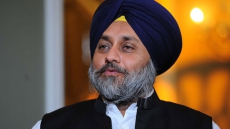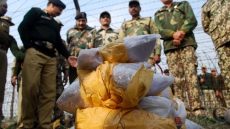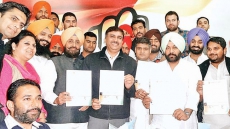In early 2000, Ratan Tata, now the Tata Group's chairman emeritus, told journalists that he wanted to create an affordable four-wheeler for two-wheeler users who couldn't afford a car. That vision was developed into the Tata Nano.
And when the Nano plant got entangled in a political quagmire in Singur in West Bengal over land acquisition issues and production stopped, Tata vision didn't blur. He moved lock, stock and barrel from Singur to Sanand in Gujarat and resumed production.
"Challenge the unchallenged. There is always scope of addressing something that seems impossible and achieving surprising results," Tata says in a new book.
The Singur incident points to the kinds of risks entrepreneurs have to take when faced with unexpected resistance and opposition. And it is their vision that has accelerated India's economy and offered solutions to simplify our stressful life.
These enriching and inspirational journeys of India's 20 leading corporate giants are woven together in a new book, "Mantras For Success: India's Greatest CEOs Tell You How to Win" (Maven; Rs. 500), that encompasses narratives of those who took over family business and those who represent the business of modern ideas.
Penned by adman and corporate writer Suhel Seth with Sunny Sen, each chapter ends with the featured businessman sharing his mantra for success.

Another interesting success story is that of Anand Mahindra, chairman and managing director of the $16.5 billion, Mahindra & Mahindra (M&M) Limited, who was also a part of Fortune's list of 50 Greatest Leaders in 2014.
One of his happiest moments was when Prime Minister Narendra Modi's grey Scorpio SUV entered Rashtrapati Bhavan for his swearing-in ceremony on May 26, 2014.
The Scorpio is perhaps the biggest success stories of the group, but before 1997, when Anand decided to set up a factory to ingeniously develop an SUV, the group was mainly known for being the maker of rural and agricultural vehicles.
He changed the rules of the game by changing with the times.
"If you want to lead a large, complex and multi-business organisation, you have to know when and how to let go, and empower others. Empowerment is the algebraic outcome of curiosity and humility," Mahindra says in the book.
Similarly, Kiran Mazumdar-Shaw, chairperson and managing director of leading bio-pharmaceutical company Biocon, has an appetite for taking risks, says the book.

In 2002, Nilima Rovshen was diagnosed with breast cancer. For six years, Mazumdar-Shaw took care of her; they had been best friends for decades. Rovshen would recover, but the cancerian pincers would always pull her back - notwithstanding the number of chemotherapy and radiation sessions she underwent. Finally, cancer did get the better of her in 2008.
Perhaps it was Rovshen's struggle that spurred Mazundar-Shaw's quest to make a home-grown cancer-treating drug. Doing so wasn't easy when all the international pharma companies were pumping in billions of dollars in research to make the next wonder drug. But she rose to the challenge, taking up a project to create a Made-in-India drug against cancer in 2007.
"Driving sustainable growth through building continuous competitive advantage is a strategy I have encouraged in the organisation," she says in the book.
It is these incredible journeys the book charts and throws light on what went behind building these corporate giants.
"The choice of selecting these 20 people was entirely mine and I have tried to incorporate things like what has been said about them earlier and what background information can be given about them to put these stories in context," Seth told IANS at the launch of the book.
These stories would invariably inspire young entrepreneurs with a dream in their eyes to make it big.




